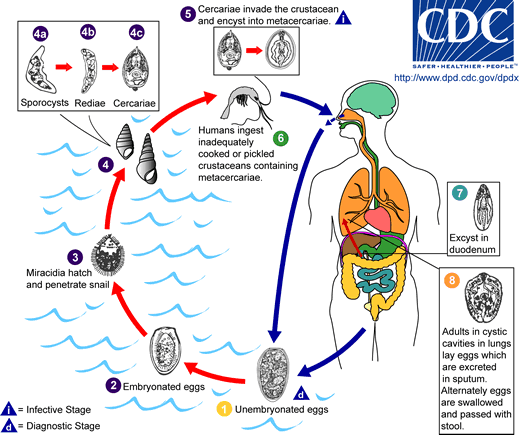
Going GREEN iSCHOOL
An Advocacy Promoting Environmental Health and Sanitation in School
The importance of balanced diet and properly nutrition was previously discussed. Food contaminant caused by chemicals, pathogenic microbes and improper food handling may cause illness, disability and even death. Here are some list of food-borne diseases and measures to prevent them.
Food-borne Infectious Diseases
Capillariasis is a disease that can be acquires through consumption or infected raw or improperly cooked small freshwater fish.
Hepatitis A is caused by Hepatitis A Virus (HAV). It is acquired through ingestion of food contaminated with human waste and urine or persons who are sick of Hepatitis A.
Paragonimiasis is a food borne parasitic disease of man and known as lung fluke disease. It is caused by a parasite known as Paragonimus Westermani (PW) which can be founf in freshwater or mountain crab.
Mad cow disease is caused by a proteinaceous particle called "prion". A person can be infected with this infectious disease by eating meat or meat products from a cow with Bovine Encephalopathy (BSE) or Mad Cow Disease.
Paralytic Shellfish Poisoning is caused by a shellfish contaminated with red tide mircroorganisms. It acquired by individual who ate contaminated shellfish. Neurological and Gastrointestinal symptoms are manifested by an infected person.
Botulism is a rare but serious paralytic illness caused by a nerve toxin that is produced by the bacterium Clostridium botulinum. Foodborne botulism is caused by eating foods that contain the botulinum toxin.
Soil-transmitted helminths refer to the intestinal worms infecting humans that are transmitted through contaminated soil ("helminth" means parasitic worm): Ascaris lumbricoides (sometimes called just "Ascaris"), whipworm (Trichuris trichiura), and hookworm (Anclostoma duodenale and Necator americanus).









